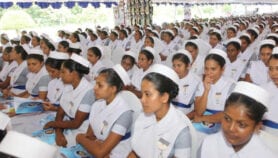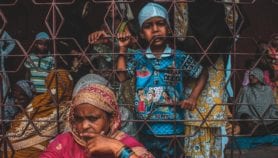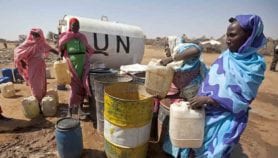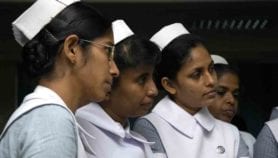By: Wagdy Sawahel
Send to a friend
The details you provide on this page will not be used to send unsolicited email, and will not be sold to a 3rd party. See privacy policy.
The president of the African Union has attacked the ‘selective immigration’ policies of developed countries that draw scientists and other skilled workers away from developing countries.
Speaking on Monday (3 April) in Algiers, Algeria, at the opening of an African Union meeting on migration and development, Alpha Oumar Konare said these policies amount to a "brain trade" that hinders African development.
According to the Algeria News Agency, Konare said industrialised nations took a "one-sided decision to loot" African countries of their brains.
Algeria’s foreign minister Mohammed Bedjaoui told the meeting that despite what is said about partnership and co-development, selective immigration policies are "simply depriving Africa of its right to development".
He said this meant that Africa must explore new ways to better mobilise "the diaspora’s … know-how, work experience and investment".
Last September, the British government announced plans to attract more scientists from developing countries, but denied that this policy would exacerbate the so-called brain drain (see UK says luring Asian talent won’t increase brain drain).
Bedjaoui said 23,000 university graduates leave Africa each year and that the brain drain is "a cause rather than a consequence of under-development".
But Robert Egnell, a Swedish researcher based at the University of Dar es Salaam in Tanzania, says this suggestion is "highly questionable".
Egnell accepts that selective immigration laws encourage educated Africans to emigrate, but says the real reasons people leave their homes and families are "poverty, corruption, political mismanagement and lack of opportunities".
"Sure, Africa is losing valuable skills, but it gains enormous sums on money in the form of remittances [sent by emigrants] that are directly pumped into the local economy and so boost economic development," he says.
"The flow of educated labour is a sign of how a government is doing politically and economically," Egnell told SciDev.Net. "If people are leaving, the government must shape up."
The aim of this week’s meeting in Algiers is to reach a common African position ahead of a Euro-African ministerial conference in June.













